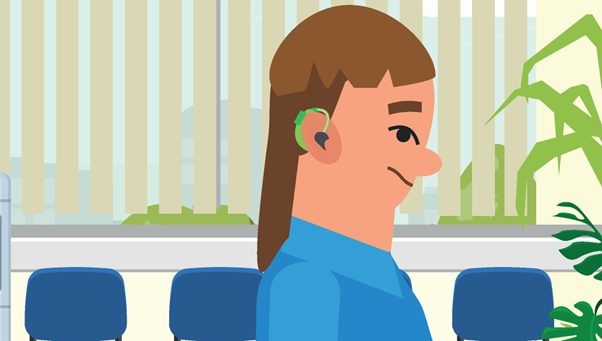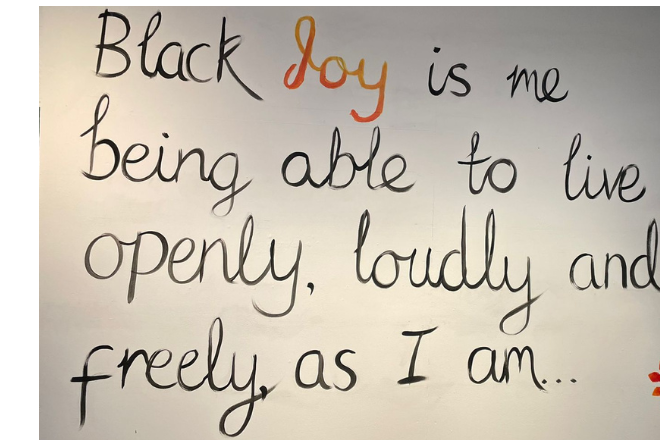In this blog, Sheila Peace, Mahera Ruby, Manik Gopinath, Caroline Holland, Bashir Uddin, Leena Khan and Jeremy Porteus share insights and reflections from the “Amar Bari Amar Jibon” (My Home, My Life) research study, focusing on how to do effective co-production in a multicultural context.
Project overview
Amar Bari Amar Jibon (My Home, My Life) is a pioneering 36-month project that began in March 2022. Through in-depth interviews it is learning about the housing needs and aspirations of 80 Bangladeshi probin (elders) living in the relatively young London Boroughs of Tower Hamlets, Newham, Hackney, and Redbridge; as well as the lives of those who live in multigenerational households. We have included individuals aged 50 and above in our study, given that the Bangladeshi community experience lower life expectancy and particular health issues, compared to other communities in the UK.
The research was proposed and successfully funded through an active partnership between Asian and White British research staff at The Open University, the Bangla Housing Association based in Hackney, and the leading network and consultancy in housing the ageing population, the Housing LIN.
Why adopt a coproduced approach to research?
Recognising that without community involvement this study would not be possible, it adopts a co-produced approach to research. We understand co-production as a form of research methodology that works on the principle of acting collaboratively in equal partnership between academic and non-academic communities to produce knowledge for social change.
Coproducing is essential to this research as:
- It demands a range of expertise and knowledge – while the academic team has expertise in research and housing for older people, they have limited knowledge and insight about the Bangladeshi community.
- It recognises the role of language and culture in building trust with the probin community to come forward and share their experiences.
- There is a moral and ethical commitment to doing research that meaningfully engages and involves communities whose voices are often marginalised.
Forming the core partnership/team

Central to this study is the careful design of the core partnership involving various members coming from the Bangladeshi community. This is the case not only through the staff of the Bangla Housing Association (BHA) who are funded co-investigators on the study but also through Mahera Ruby, the Post-Doctoral Research Associate appointed to The Open University team. Their rootedness within and affiliation with the community (i.e. as insiders) has proven instrumental in fostering co-production. It has heightened the project's standing in the community. Equally, being core members of the project team has enabled them to maintain their (outsider) roles as professionals when interacting with the community.
The following quote gives an insight into the dynamics of carrying both roles:
‘I share the same ethnic background as the community we are researching in, which qualifies me as an insider researcher. However, I also hold the role of a Post-Doctoral Research Associate affiliated with the university, bound by the ethical standards we must maintain during interactions with the community members. Being an insider grants me the advantage of easily accessing the community, as we share a common language and understand the social nuances. Yet, there are instances where being an outsider adds credibility to the research, leading to a dynamic tension between myself and the participants.' (Mahera Ruby, Post-Doctoral Research Associate from Fieldnotes 2024)
Forming the Bangladeshi Research Advisory Group (BRAG)
.jpeg)
Communities are rarely homogeneous entities, differentiated as they are, by class, sex, housing tenures, educational backgrounds, ages, ethnicities and geographical locations. This led the core partnership to reflect on issues of representation and diversity culminating in a decision to forming the Bangladeshi Research Advisory Group (known to everyone as BRAG).
Bangla Housing Association and Mahera Ruby’s intimate understanding of the community, coupled with their extensive networks, facilitated the identification of individuals who expressed an interest in joining the BRAG. They are of mixed ages from across the four Boroughs including five elders (probin) from the Bangladeshi community. Following an early online meeting explaining the research role of BRAG, nature, duration and practicalities of their involvement, and available support from the project team, eight individuals agreed to become members of the advisory group. Two older women who have limited English agreed to join the group a little later and they are supported by Mahera Ruby and the Bangla Housing Association to engage fully in the meetings.
.jpeg)
How the BRAG group operates was co-produced with them from the start. Members chose to meet quarterly with the team ‘face to face’ on weekends at Bangla Housing Association offices in London. They also requested setting up a dedicated WhatsApp group as a communication channel for the research project. Further down the line, Mahera Ruby developed a newsletter and also added voice notes on the WhatsApp group to keep them more informed and involved with the project. These now established communication mechanisms support the ongoing collaborative relationship between the team and BRAG.
An introductory session led by Co-Production Collective for BRAG and project team members helped embed a mutual understanding of the values and principles of what working in a co-produced way entailed. As with any positive relationships, values of inclusiveness, mutual respect, transparency and challenging each other to create a trusting partnership were agreed upon.
Value in working together
The dynamic collaboration among the Bangla Housing Association, the Open University team, and BRAG members, navigating their roles both as insiders (members of the Bangladeshi community) and outsiders (as members of the research team – having an equal say to how the research is conducted as members of the Open University team), have played a crucial role in developing ways of engaging Bangladeshi communities. This coupled with the active role BRAG played in forming the recruitment strategies for both the community co-researchers and probin (elders) has shaped and progressed the research in ways that would not have been possible without their contributions.
Our collaborative journey so far is captured in the following illustration:

Sharing insights, highlighting communication issues
Appropriate language skills are crucial to engaging the older Bangladeshi community in interviews. BRAG alerted the team to the heterogeneity within the Bangladeshi community in terms of languages spoken that include Sylheti and Bangla and hence the need to recruit Bangla speaking co-researchers. While the initial assumption by the Open University and the Bangla Housing Association team was centred around the necessity for Sylheti-speaking community co-researchers as most of the community are from Sylhet, discussions with BRAG team members revealed the need to recruit community co-researchers proficient in Bangla, Sylheti, and English. This shift was driven by their insights into language dynamics within the 50+ Bangladeshi community, emphasizing the increasing use of English among younger probins who were aged 50 to 60. This experience of co-production has led to on-going reflection on methods and the importance of language used by probin (elders) within the Bangladeshi community
Getting the message across - Probin recruitment and interviews process
One BRAG meeting was dedicated to the discussion of the recruitment leaflet for probin (elders), information sheets (both in English and Bangla) and research tools that were to be used by the community co-researchers to interview the probins. The BRAG members transformed the design and, language used on the leaflet, inviting probin (elders) to take part in the research to make it more visible, accessible, encouraging and culturally relevant. They had a keen sense that appealing to probin (elders) about making a difference to their community would chime well, which was captured in the Bengali phrases and also translated into English. Their suggestion to translate the leaflet into Bangla and to have them printed double sided worked well.

Giving their time and networks
Throughout this process BRAG members were central to appointment, training and support of the community co-researchers. From the 45 applications received for these posts, the team recruited eight community co-researchers reflecting different life experiences, ages and genders. As well as ensuring there were co-researchers who could conduct the research in Bengali and Slyheti dialects and English.
The successful community co-researchers underwent a comprehensive four day training program led by members of the Open University research team alongside three BRAG probin (elders) members who were actively engaged in the process acting as people being interviewed. This participation provided community co-researchers with valuable opportunities to practice and refine their probin interviews, contributing to their overall skills development. Members of the BRAG actively participated in spreading the word and advised on how to advertise the co-researcher posts. They advised on where the project could be advertised in mosques, faith groups, community centres, libraries and between generations and made introductions where they had contacts.
Final reflections on the process to date
When the proposal for this project was being developed and partnership working seen as central, perhaps the amount of effort needed to establish trust amongst Bangladeshi community members and the organisations that are part of them and work with them was not considered well enough by the academic team. This was a trust that has grown over time. The Open University team had considered communication as an issue that could prevent us from moving forwards but had not really recognised the importance of different dialects and nuances of meaning in explanation of ways of living.
Reflecting on how BRAG members have improved the quality of the research so far through making it culturally relevant and accessible; they have filled the gaps with their tacit knowledge, adding value and extending the project networks. Their openness to decisions and the team’s evolving communication practices have created accessibility, inclusivity and flat spaces for open, candid, and constructive discussions and dialogue. Everyone involved in this research project now appreciates the value everyone brings to the table and there is a developing sense of team spirit where individuals are supporting and looking out for each other.
When reflecting on their own experiences members of the Bangladeshi Research Advisory Groups shared the following views:
‘I shared my experience with all, I learned many things and extended my knowledge.
When we all work together the work is more robust and valuable/weighty:
- Singlehandedly not everything is possible
- Broader perspective of the issues and the solutions
- More voices mean more power – power of collective’
This research is a continuous learning process where everyone is becoming more confident in putting forward their ideas. It takes time to establish trust between people but by trying to be as open as can be there is hope for sharing responsibility and finding the right ways to understand and communicate findings. As one community member put it:
‘The value of knowledge is determined by its usefulness– put the knowledge into practice. In BRAG we pulled all participants knowledge together on the table.’
Acknowledgements
Amar Bari, Amar Jibon (My Home, My Life) partnership would like to thank all the Bangladeshi Research Advisory Group members for the quotes and conversations that have reflected on the process of the research so far.



.jpeg)


.png)
.png)

.png)

.png)
.png)
